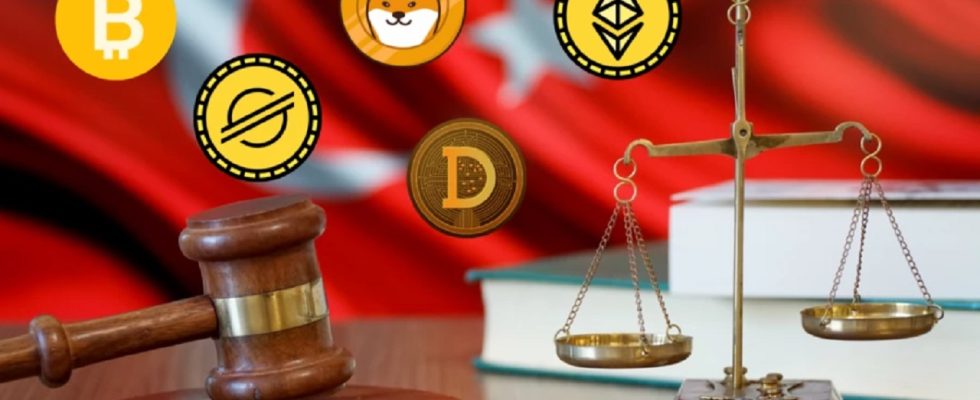South Africa has taken an important step towards protecting crypto investors and traders. In this regard, it was the first country in Africa to introduce licensing regulations for crypto exchanges.
License requirement for crypto exchanges in South Africa!
Bloomberg reports that the country’s local financial regulator, the Financial Sector Conduct Authority (FSCA), will require all crypto exchanges to be licensed by the end of 2023. This regulatory measure aims to provide greater transparency and accountability in the rapidly growing crypto industry.
The licensing process opened a few weeks ago. However, since then, about 20 applications from exchanges have been submitted to the FSCA. This indicates a strong desire among industry players to comply with the new regulatory framework. It also demonstrates a desire to operate within legal limits. With the deadline set for the end of November, more applications are expected to be received in the coming months.
FSCA Commissioner Unathi Kamlana emphasized the importance of obtaining a license for crypto exchanges. It also warned that those who continue to operate without proper authorization will face sanctions or financial penalties. Kamlana said that unlicensed platforms pose potential risks for traders and investors. Therefore, he stressed that it warrants the need for regulatory oversight. The FSCA aims to protect users by ensuring that only licensed exchanges can offer crypto trading services in South Africa.
FTX’s collapse put pressure on regulations
The move to enforce licensing requirements is in line with the FSCA’s commitment to developing the crypto space and addressing potential risks. Working closely with the industry, the regulator aims to make the necessary changes to protect users and increase market confidence. The decision to expand licensing regulations to global exchange Binance demonstrates the country’s determination to create a safe environment for cryptocurrency trading.
cryptocoin.comAs you follow, FTX, a Bahamas-based crypto exchange giant, collapsed last year. This has raised concerns among governments and regulators globally. South Africa’s proactive approach to enforcing licensing regulations is indicative of a concerted effort to prevent similar incidents and mitigate potential risks. The FSCA’s focus on protecting traders and investors signals a shift towards increased regulation in this industry.

What does the licensing move mean for crypto exchanges?
South Africa’s move to introduce licensing requirements follows the latest developments in the European Union, where MiCA regulations have been approved. This indicates a growing trend towards the implementation of comprehensive regulatory frameworks for cryptos worldwide. Increased oversight aims to ensure investor protection, promote market integrity and support responsible innovation in this area.
South Africa’s move is an important step towards creating a safer and more regulated environment for cryptocurrency trading in the country. By implementing these measures, the FSCA aims to protect users from the potential risks associated with unlicensed platforms. As the deadline approaches, more crypto exchanges are expected to request licenses. This shows that a positive response has been received from industry players. This regulatory development is in line with global efforts to increase industry transparency, investor protection and responsible innovation.
Contact us to be instantly informed about the last minute developments. twitter‘in, Facebookin and InstagramFollow and Telegram And YouTube join our channel!
Risk Disclosure: The articles and articles on Kriptokoin.com do not constitute investment advice. Bitcoin and cryptocurrencies are high-risk assets, and you should do your own research and due diligence before investing in these currencies. You can lose some or all of your money by investing in Bitcoin and cryptocurrencies. Remember that your transfers and transactions are at your own risk and any losses that may occur are your responsibility. Cryptokoin.com does not recommend buying or selling any cryptocurrencies or digital assets, nor is Kriptokoin.com an investment advisor. For this reason, Kriptokoin.com and the authors of the articles on the site cannot be held responsible for your investment decisions. Readers should do their own research before taking any action regarding the company, assets or services in this article.
Disclaimer: Advertisements on Kriptokoin.com are carried out through third-party advertising channels. In addition, Kriptokoin.com also includes sponsored articles and press releases on its site. For this reason, advertising links directed from Kriptokoin.com are on the site completely independent of Kriptokoin.com’s approval, and visits and pop-ups directed by advertising links are the responsibility of the user. The advertisements on Kriptokoin.com and the pages directed by the links in the sponsored articles do not bind Kriptokoin.com in any way.
Warning: Citing the news content of Kriptokoin.com and quoting by giving a link is subject to the permission of Kriptokoin.com. No content on the site can be copied, reproduced or published on any platform without permission. Legal action will be taken against those who use the code, design, text, graphics and all other content of Kriptokoin.com in violation of intellectual property law and relevant legislation.
